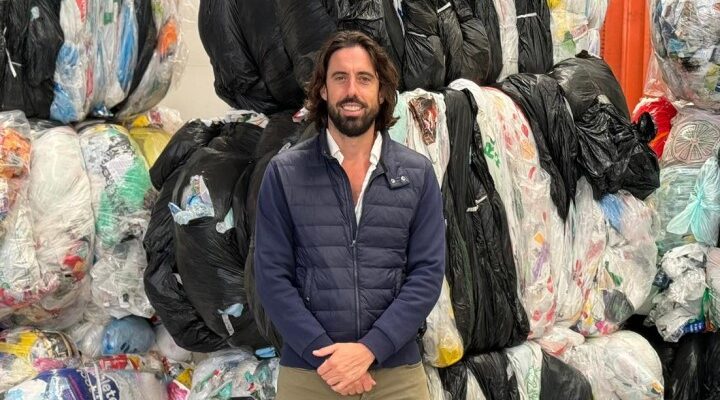Recycling has had a rough few years in Australia. While many businesses are doing their part to move away from plastic and use more sustainable and recyclable materials, it’s still proving difficult to keep non-biodegradable materials out of landfill. And, with the collapse of soft-plastic recycling provider RedCycle in 2022, many brands have been left with few places to turn. But there is a new player on the scene. Earlier this year, Sydney-based recycling service RecycleSmart raised
aised $1 million in crowdfunding in order to expand its offering to more Australian cities.
After launching in Sydney in 2019, the business expanded to Melbourne in July and is now entering Brisbane. The next step will be to launch in further cities in 2024.
RecycleSmart offers customers an easy way to responsibly dispose of unwanted items: they simply put everything they want to recycle into a bag and schedule a pick-up through the business’ app.
RecycleSmart will do the sorting itself, taking the headache out of the process for customers and businesses, before passing collected waste onto councils and partners for recycling.
Larger businesses can organise pick-ups as well, with RecycleSmart already working with organisations such as Google, Canva, Disney, Dolby and WeWork.
Using this model, RecycleSmart has, so far, saved over 570 tonnes of waste from landfill. It currently has over 50,000 users across Sydney and Melbourne.
Baracchi said the business is targeting Australian consumers who want to recycle, but view the process as too hard.
According to Baracchi, there is quite a bit of confusion in the community around what can be recycled, and what can’t.
“We take everything that doesn’t go in the bin: soft plastic, polystyrene, cardboard, e-waste, batteries, smoke detectors, barbeques, kettles, and the list goes on,” he said.
“And this solution targets the 80 per cent of Australians that are aware they should be doing the right thing and not put these things in the bin, but it’s too hard [to find an alternative].”
According to RecycleSmart, collected soft plastics are shredded and converted into feedstock oil, clothes and textiles are donated to charities to be resold if they can still be worn, or repurposed and recycled if they can’t. Polystyrene is transformed back into raw material for construction purposes, and e-waste has any valuable materials extracted before being disposed of properly.
“We make sure every item has a second life,” Baracchi said.
Learning from the past
The collapse of RedCycle in November 2022 caused a lot of controversy not only because it left so many businesses high-and-dry without a recycling partner, such as Coles and Woolworths, but because it had been stockpiling collected plastics in warehouses for months rather than recycling and reusing them as was promised.
At the time, RedCycle’s founder Liz Kasell explained that the pandemic had led to a 350 per cent increase in recycling supply, but that demand for recycled output fell 95 per cent, leaving the organisation with a circular system that no longer balanced out and required stockpiling.
This issue has been taken on in the short-term by the Soft Plastics Taskforce: a conglomerate of supermarkets, namely Coles, Woolworths and Aldi, authorised by the Australian Competition and Consumer Commission (ACCC).
However, consumer trust in the recycling space hasn’t yet recovered.
Barrachi said that RecycleSmart doesn’t store any material that it collects – rather, it is all passed on to relevant partners and councils that facilitate the recycling processes.
“Climate change and safeguarding our planet for future generations have become increasingly important issues,” he said.
“People want to do more to take ownership of their own waste, [and] we are very clear about the process of recycling, what we collect and the companies we partner with, which gives people peace of mind.”

